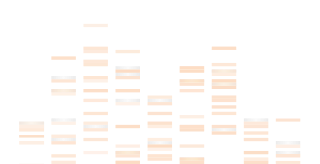Sonic Healthcare USA enhances the value of genetic testing by improving access and streamlining services for our patients and providers. Sonic provides our patients direct access to expert genetic counseling solutions, supporting an increased need for understanding genetic test results.

The Sonic Difference
End-to-end laboratory partnerSeamless and non-disruptive integration with office workflows |
Extensive interface experienceEHR interfaced results delivered securely in an optimized report format |
Conclusive and patient-friendly resultsAvailable through our online patient portal, SonicMyAccess |
Best-in-class accessLocal pathology support and access to over 500 patient service centers in the U.S. |
Genetic counselingPost-test sessions with licensed and board-certified genetic counselors |
 Billing services and price estimatesDedicated care specialist team for patient eligibility, benefits verification, and prior authorization services |
Prenatal screening during pregnancy
Non-invasive prenatal screening is considered to be appropriate for all pregnant women regardless of age or personal history.1 We utilize a guideline-based approach to develop our test menu, improving the quality of care while potentially lowering costs.
Chromosome Conditions:■ Trisomy 21 (Down syndrome) ■ Trisomy 18 (Edwards syndrome) ■ Trisomy 13 (Patau syndrome)
|
Add-On Offerings Include:■ Fetal Sex ■ Monosomy X ■ Sex Chromosome Aneuploidies ■ Microdeletions Syndromes+ ■ All Chromosome Aneuploidies+ |
+Screening for other aneuploidies such as trisomy 16, trisomy 22, microdeletion testing, and genome-wide screening for large copy number changes is not recommended by ACOG as testing is not clinically validated and detection rates and false-positive rates are not well established.1
Insights
Twin Pregnancies
|
Microdeletions and Rare Autosomal AnueploidiesScreening for other aneuploidies such as trisomy 16, trisomy 22, microdeletion testing, and genome-wide screening for large copy number changes is not recommended by ACOG as testing is not clinically validated and detection rates and false positive rates are not well established.1 These testing options should only be done after a thorough informed consent process which includes discussing the high probability of a positive result being a false positive.2 Testing should only be ordered if a provider can give a clear indication of risk of fetal death, serious fetal abnormality, or other adverse pregnancy outcome as there is limited data to help guide clinicians on pregnancy management when these findings occur.3 |
As a screening test, NIPS is not intended to diagnose chorionicity or replace ultrasound evaluation.

While younger women may have a higher risk for fetal microdeletion syndromes than aneuploidy, ACOG does not recommend Non-Invasive Prenatal Screening for microdeletions.

Test Performance Overview4
| Aneuploidy | Singleton Pregnancies | Twin Pregnancies | ||||
|---|---|---|---|---|---|---|
| Sensitivity | Specificity | NPV (%)* | PPV (%)* | Sensitivity | Specificity | |
| Trisomy 21 (Down syndrome) |
>99% | >99.9% | >99.9% | 49.82 | 96.4% | 99.9% |
| Trisomy 18 (Edwards syndrome) |
>99% | >99.9% | >99.9% | 49.99 | 95.7% | 99.9% |
| Trisomy 13 (Patau syndrome) |
>99% | >99.9% | >99.9% | 50.05 | 93.6% | 99.9% |
| Fetal Sex Aneuploidies | Sensitivity | Specificity |
|---|---|---|
| Monosomy X (Turner syndrome) |
90.5% | >99% |
| XXX (Triple X syndrome) |
>99% | >99% |
| XXY (Klinefelter syndrome) |
>99% | >99% |
| XYY (Jacobs syndrome) |
91.7% | >99% |
*PPV and NPV values calculated at 0.1% prevalence
Data presented in this table are based on VeriSeq NIPT v2 CE-IVD5
Fetal sex aneuploidies cannot be performed in twin pregnancies
Discover comprehensive outcomes with the lowest “no-call” rate
Sonic Healthcare USA offers non-invasive prenatal screening using cutting-edge innovations that yield undetected low rates to provide accurate results and reporting, reducing unnecessary re-testing, procedures, and rate of being redrawn.
Reducing the “no-call” rate may help to lessen:
■ Unnecessary diagnostic tests
■ Patient anxiety while awaiting results

4 Step Testing Process

Test Requisition
Provider completes a genetic carrier and prenatal screening requisition or electronic test request form along with patient consent form. The test can be requested from 10 weeks completed gestation.

Sample Collection
Patient’s blood sample can be taken at one of our 500+ patient service centers or within your office. No specialized kits or scheduling is necessary.

Test Results
Patient’s sample is tested and results are reported back to you. Patients can access test results online through our Patient Portal, SonicMyAccessTM.

Genetic Counseling
Patients found to be at high risk of having an affected child will be offered genetic counseling.
References:
1. American College of Obstetricians and Gynecologists. Practice Bulletin No. 226: Screening for fetal chromosome abnormalities. Obstet Gynecol. 2020;136(4). | ACOG Practice Bulletin 226: Screening for Fetal Chromosomal Abnormalities. Obstet Gynecol 2021 Oct;136(4):e48-e69
2. https://www.ajog.org/article/S0002-9378(17)31187-0/pdf
3. Benn P, Borrell A, Chiu R, et al. Position statement from the Chromosome Abnormality Screening Committee on behalf of the board of the International Society for Prenatal Diagnosis. Prenat Diagn. 2015;35(8):725-734.
4. Data on file, Illumina, 2019.
5. https://support.illumina.com/conte
6. Taneja PA, Snyder HL, de Feo E, et al. Non-invasive prenatal testing in the general obstetric population: clinical performance and counseling considerations in over 85,000 cases. Prenat Diagn. 2016;36(3):237-243.
7. Norton et al, N Engl J Med. 2015; 23;372(17):1589-97
Important Test Information
NIPS is a screening test, therefore false-negative or false-positive results can occur. Carrier conditions including but not limited to blood transfusion, organ transplantation, bone marrow transplant, certain surgical procedures, stem cell therapy, malignancy, or genetic mosaicism can affect test accuracy. Pregnancy-related conditions such as fetal or placental genetic mosaicism, nonviable twin, or fetal demise can decrease test accuracy. There are exceptional and uncommon situations which is why NIPS should be regarded as a screening test. There is a small well-defined possibility that NIPS will not reflect the actual chromosome status of the fetus. A “high probability” result should be confirmed by invasive genetic testing before taking irreversible steps in the management of the pregnancy. A “low probability” result may still warrant invasive genetic testing if there are other indicators of a fetal chromosome disorder. NIPS does not detect all genetic defects or non-genetic or structural birth defects. Conclusions about the fetal condition and pregnancy management decisions should not be solely based on the results of this screening test alone.
Non-Invasive Prenatal Screening: This test was developed and its performance characteristics were determined by Sonic Reference Laboratory (SRL). It has not been cleared or approved by the U.S. Food and Drug Administration (FDA). The FDA has determined that such clearance or approval is not necessary. This test is used for clinical purposes and should not be regarded as investigational or for research. SRL is qualified to perform high complexity testing under the Clinical Laboratory Improvement Amendments (CLIA).

